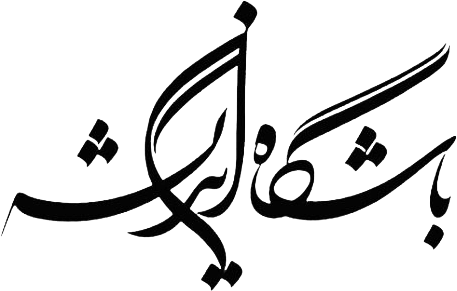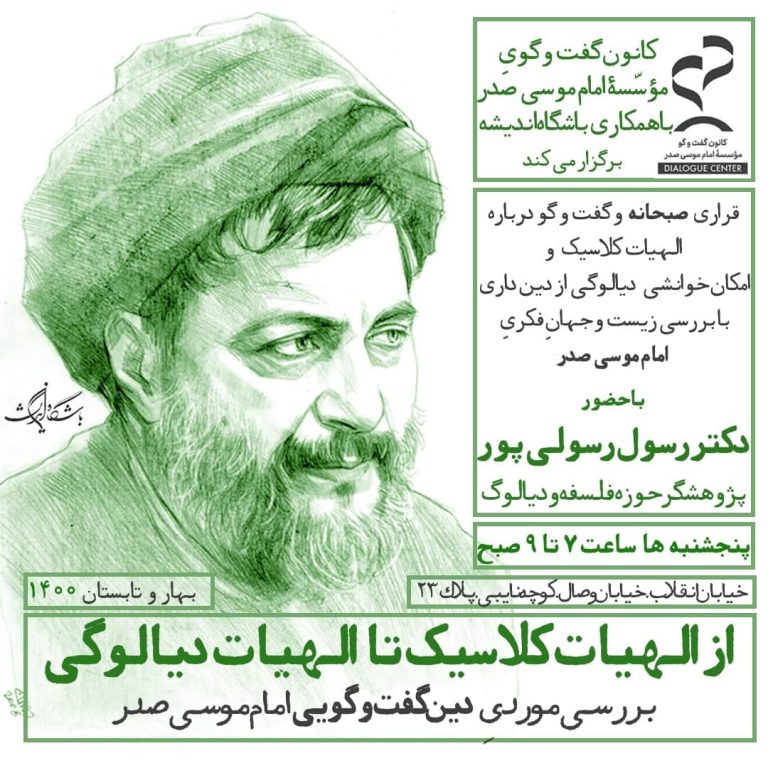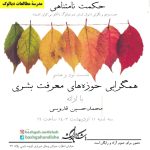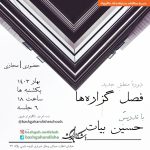
مقالۀ «امام موسی صدر و دینِ گفتوگویی» نوشتۀ دکتر رسول رسولیپور انتشار یافت. این مقاله طی ۹ جلسه در درسگفتارهای «از الهیات کلاسیک تا الهیات دیالوگی» در بهار ۱۴۰۰ به میزبانیِ باشگاه اندیشه و کانون گفتوگوی موسسۀ امام موسی صدر ارائه شد.
📝 چکیده
In my opinion, the religion of Imam Musa Sadr is dialogical one. ImamMusa Sadr is not interested in communication just for the sake of communication. Dialogue for the sake of dialogue can become a hobby and a business, and after examining all aspects of a crisis, it ends without any results and resolving any issue. Musa Sadr is looking for a type of dialogue or religiosity that leads to a purposeful, nurturing, and constructive interaction for the betterment of society. Unlike some religious scholars who have an exclusivist approach to religion and believe that only they have access to absolute truth and suffice with ritual religiosity, which in their opinion guarantees salvation in the hereafter, and at the time of facing fundamental challenges in humanlife – whether at the global level, or even nationally and regionally – adopt a passive and unworldly stance, Imam Musa Sadr defines all religious beliefs, values, and guidelines with a divine and inclusive approach to human person and the world, and believes in interaction and coexistence of human beings from every religion and faith; aimed at unraveling different types of social problems. Adopting a responsible and active stance, he says: “The job of religionis to ease human’s condition and her success in life, and not any benefit and expediency beyond that.” Musa Sadr’s dialogical religion, in this paper, will be examined in five sections: the shoulds (preconditions), the nature (essence), redefinitions (of laws, beliefs, and values), functions and goals, and finally, the existing doubts will be scrutinized.






